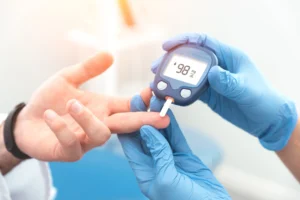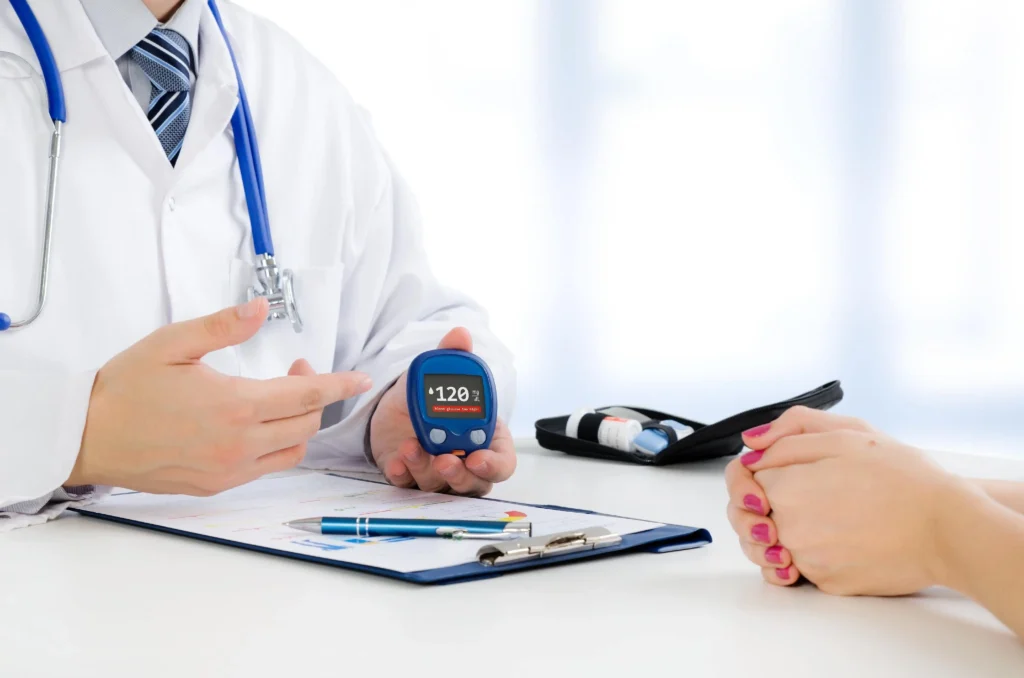As part of activities to commemorate the 2022 World Diabetes Day on 14 November, Nigeria’s Minister of State for Health, Ekumankama Joseph Nkama, stressed that widening access to diabetes education across communities is vital in combating the rising cases of the disease. Speaking during a press briefing in Abuja, the minister underscored the need for proactive measures to prevent, detect, and manage diabetes effectively in the country.
Low Awareness Fueling Diabetes Crisis in Nigeria
Minister Nkama expressed deep concern about the widespread ignorance of diabetes among Nigerians, especially regarding its symptoms, complications, and available treatments. According to him, many individuals living with diabetes remain unaware of their condition, which increases the risk of complications and mortality. He stated:
“A large majority of people living with diabetes in Nigeria have little or no knowledge about the disease. This lack of awareness significantly contributes to the increasing prevalence and mortality rate.”
He also emphasized that Nigeria’s diabetes burden is escalating due to inadequate education on prevention, poor access to routine testing, and delayed treatment.

Public Health Measures: Prevention Over Cure
Nkama identified diabetes as a major public health challenge, but one that can be effectively tackled through awareness campaigns, health worker training, and improved healthcare delivery systems.
He pointed to lifestyle factors—including poor dietary habits, increasing consumption of sugary drinks, tobacco use, alcohol abuse, and sedentary behavior—as primary drivers of Type 2 diabetes, especially in urban areas. These trends, he said, are worsening due to rapid urbanization and industrialization.
Quoting statistics from the World Health Organization (WHO), the minister revealed that the prevalence rate of diabetes in Nigeria stands at 4.3%, with numbers expected to grow unless significant interventions are made.
Education, Insulin Access, and Affordability Still Major Barriers
Nkama also pointed out that beyond general awareness, a key obstacle to diabetes control in Nigeria is the lack of access to proper medical education and affordable treatments, particularly insulin for those with Type 1 diabetes.
He said:
“The absence of quality diabetes education and access to affordable treatments, including insulin, is severely hindering our efforts to manage and reduce the impact of the disease.”
To reverse this trend, he urged religious leaders, community influencers, stakeholders, and media organizations to intensify public sensitization efforts and promote healthy lifestyles that can prevent or delay the onset of diabetes.
WHO Renews Commitment to Support Nigeria’s Fight Against Diabetes
In a goodwill message delivered during the briefing, Dr. Walter Kazadi Mulombo, WHO Country Representative to Nigeria, reaffirmed the organization’s support for Nigeria’s efforts to tackle diabetes and other non-communicable diseases (NCDs).
Dr. Mulombo explained that World Diabetes Day, observed globally every 14 November, aims to highlight the growing burden of diabetes and promote effective strategies for prevention and control.
He noted that the theme of the 2022 campaign—“Access to Diabetes Care”—remains a central focus, emphasizing that health systems must shift from reactive care to preventive care in line with WHO Director-General’s global health vision.
Undiagnosed Cases and the Need for Early Detection
Dr. Mulombo expressed concern over the large number of people in Africa who remain undiagnosed and therefore untreated. He cited that more than 50% of Africans living with diabetes do not know they have it, and this lack of diagnosis poses a major threat to public health.
He warned:
“Without proper diagnosis and necessary lifestyle changes, diabetes can cause debilitating complications like kidney failure, blindness, heart disease, and amputations.”
To address this, the WHO pledged full support for training healthcare workers, especially at the community level, to strengthen early detection and improve management services nationwide.
Launch of the iCARE Initiative: A Lifeline for Vulnerable Patients
One of the major highlights of the event was the official launch of the iCARE initiative, a collaborative program between the Federal Ministry of Health and Novo Nordisk, a global healthcare company.
The iCARE initiative aims to:
-
Increase access to affordable diabetes care for vulnerable groups,
-
Provide free or low-cost insulin to eligible patients,
-
Prevent avoidable deaths from Type 1 diabetes,
-
Improve health outcomes for children and young adults living with the disease.
Minister Nkama expressed appreciation to all partners, including WHO, for their continuous support in raising awareness about diabetes and other communicable and non-communicable diseases affecting Nigerians.
A Call to Action
As Nigeria grapples with the growing threat of diabetes, stakeholders at the event reiterated the need for:
Consistent public education on risk factors and prevention,
-
Wider access to diagnosis and medication, especially insulin,
-
Stronger collaboration between government, healthcare providers, civil society, and international partners.
The commemoration of World Diabetes Day 2022 served not only as a platform to assess the challenges but also as a reminder of the urgent need for collective action to ensure every Nigerian has access to the knowledge, resources, and care necessary to combat this lifelong disease.







